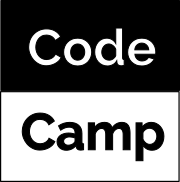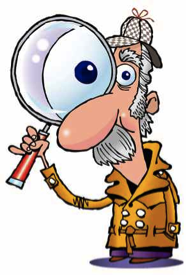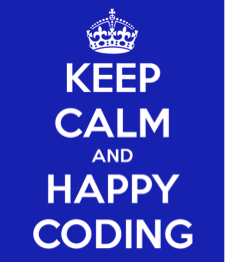Daniel Huang
 Well we finally made it. The end of Code Camp. What started as a hobby for me three months ago has become so much more. What I think was successful about Code Camp: students learned to collaborate, students became more fearless of mistakes, and students left the camp more excited about programming than when they came to camp. While I would consider this experience as a success, I’m my own worst critic so here’s what I thought of everything.
Well we finally made it. The end of Code Camp. What started as a hobby for me three months ago has become so much more. What I think was successful about Code Camp: students learned to collaborate, students became more fearless of mistakes, and students left the camp more excited about programming than when they came to camp. While I would consider this experience as a success, I’m my own worst critic so here’s what I thought of everything.
Challenging all students
Coding is an interesting subject to teach- you could have all students come in at the same skill level, but it’s a subject that’s so heavily dependent on critical thinking skills that once you teach the basics, the variety in skill level become enormous. I knew this was going to be a challenge when I started Code Camp and while I was partially successful, I knew some people were dropping because they felt that the material was too easy for them, but on the other hand, other people were dropping because they didn’t understand the material (we had a total of around 5 people drop).
One of the reasons why I chose C++ and HTML/CSS for this camp was because of their relatively simple syntax. Students shouldn’t get too caught up into trying to memorize long lines of code in order to accomplish something, and thus allowing me to focus more on the problem solving aspect of coding. Compared to my experience teaching Java, this strategy seemed to have worked, however there was still a learning curve for some students that became frustrating for them.
While the smaller discussion sections helped students  immensely in terms of understanding the syntax of these programming languages, I thought that this was still taking up too much time compared to the true essence of coding: understanding how to solve a problem. Thus, it was very difficult for me to provide problems that challenged all students as for some students it would either be too easy or too hard.
immensely in terms of understanding the syntax of these programming languages, I thought that this was still taking up too much time compared to the true essence of coding: understanding how to solve a problem. Thus, it was very difficult for me to provide problems that challenged all students as for some students it would either be too easy or too hard.
Moving forward, I’d like to provide more practice for students to help them memorize syntax. I want to try experimenting using flashcards to memorize key terms, and providing more optional projects that are simple but really allow students to get use to the syntax. I would also like to make everybody sign up for a personal meeting with me to try to work out what they didn’t understand which will hopefully encourage more people to be fearless about asking for help.
Learning behaviors
One of my goals for this camp was to motivate students to learn on their own. I provided as many resources as I could in hopes that they will use at least some of them. This didn’t quite work out the way I intended to. I noticed that most students didn’t do a lot of the practice problems that we provide them nor did they thoroughly look at the packets that we wrote for them. After some thought, I realized we may have provided too much personalized help- in other words, we answered too many questions. At first this sounds strange, isn’t this what you’re suppose to do as a teacher? This assumption is only partially correct. The true job of a teacher is to show students how to find the answer, not to just give them the answer.
To improve upon this, I want to place a larger emphasis on students that we care more about their ability to teach themselves than to know the right answer. This would mean telling them how to find the right answer and only ask teachers as a last resort. This would also involve showing them more resources and how to use those resources. At the end of the day, if all we are doing is telling them the right answers and they forget them by the end of the camp, then we’ve wasted their time and we’ve wasted our time.
In Conclusion…
This camp has definitely motivated me to improve my own teaching strategies as well as placing a larger emphasis on self-discovery and inspiration. While there are still things to improve upon, I still think of this camp as a success under John Wooden’s definition: “Success is peace of mind which is a direct result of self-satisfaction in knowing you did your best to become the best you are capable of becoming.”As we go onto holding more classes, I aim to make the learning experience for our students more challenging, empowering, and above all, inspiring.





